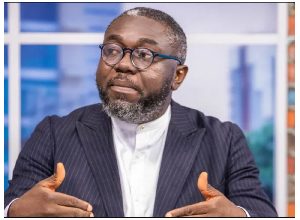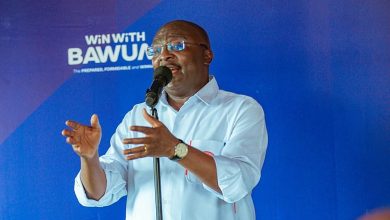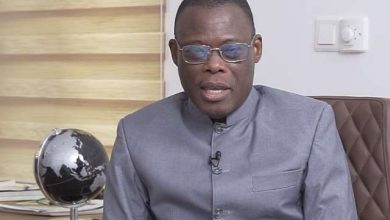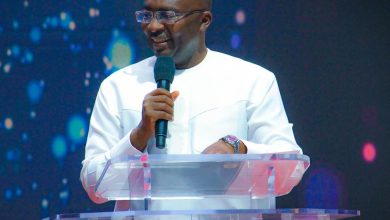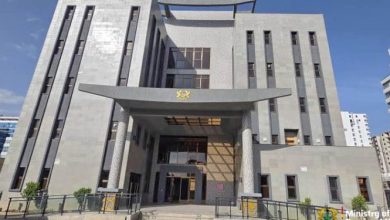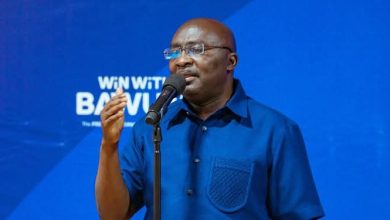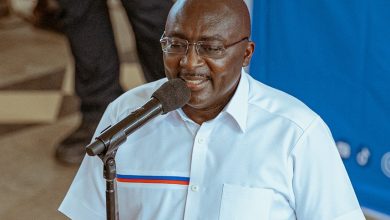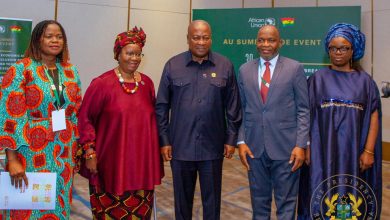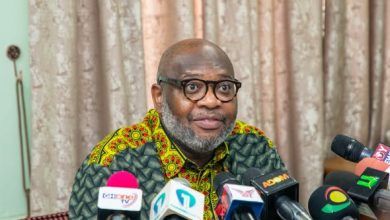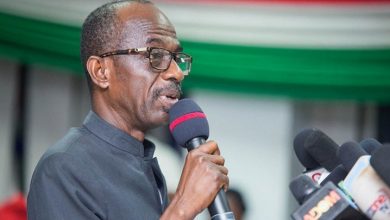State files witness statements in GH¢49m fraud case against Adu Boahene
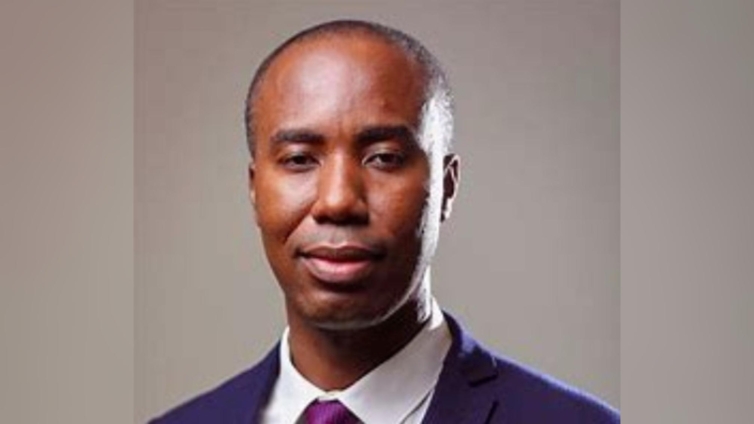
The State has filed witness statements in the ongoing prosecution of the former Director-General of the National Signals Bureau (NSB), Kwabena Adu-Boahen, his wife Angela Adjei-Boateng, their associate Mildred Boateng, and their jointly owned company, Adantage Solutions Limited.
The four are standing trial for multiple counts including stealing, causing financial loss to the state, and conspiracy.
These statements were made by lead investigator Frank Marshall Cromwell, Director of Finance at the NSB Edith Ruby Opokua Adumua, and Frank Anane Dekpey, a self-described errand assistant to the accused persons.
According to the statement by Cromwell, the accused persons conspired to divert GH¢49.1 million in state funds under the pretense of purchasing a cybersecurity defense system. He noted that investigations revealed the scheme was masterminded by Adu-Boahen (referred to as A1), who colluded with his wife (A2), their associate (A3), and a private company (A4).
Cromwell stated that A1, acting in his capacity as Director of the Bureau of National Communications (BNC), signed a contract with Israeli firm ISC Holdings Limited on January 30, 2020, for the supply of a cyber defense system valued at US$7 million—equivalent to GH¢49.1 million at the time. The amount was drawn from a government account at Fidelity Bank and transferred via three cheques labeled “BNC Operations” into an account at UMB Bank. That account, named “BNC Communications Bureau – Operations,” was allegedly controlled by A1 and A2.
However, only GH¢9.5 million of the funds was actually transferred to ISC Holdings, Cromwell said. He further revealed that on March 2, 2023, A1 and A2 co-signed a letter instructing UMB Bank to close all accounts held in the name of BNC Communications Bureau Limited and to transfer the remaining funds to another account owned by A4.
In her testimony, Edith Ruby Adumua, Director of Finance at the NSB, corroborated several aspects of the financial transactions. She explained that the Bureau operated three main bank accounts: two at the Bank of Ghana—“Bureau of National Communications” and “BNC 2”—and one at Fidelity Bank titled “The Director BNC.”
These accounts were signed by the then National Security Coordinator, the late Joshua Kyeremeh, A1, and the Director of Finance at the Ministry of National Security, Mr. Seth Kwadwo Danso. While the main account followed a rigorous approval process involving documentation and audit verification, the operational accounts were under the direct control of A1 and oversight of the National Security Coordinator.
Ms. Adumua recounted how A1 would verbally instruct her to prepare cheques, which he and the late Kyeremeh would then sign. She specifically cited an incident on February 6, 2020, when she was instructed to issue a GH¢27.1 million cheque payable to “BNC Operations.” Believing it to be an official Bureau transaction, she later discovered the money was deposited into a UMB Bank account belonging to a private company allegedly owned by A1 and his wife. Additional cheques totaling GH¢22 million were also issued under similar instructions and deposited into the same private account.
She noted that while she had concerns over these irregular transactions, she felt restricted by the NSB’s rigid “need-to-know” protocols. She added, however, that she had seen a US$7 million invoice from ISC Holdings and confirmed that US$3.11 million was paid from the Fidelity Bank account to the company—although she emphasized that this transaction was unrelated to the charges currently before the court.
The third witness, Frank Anane Dekpey, a church member of A1 and a self-described errand assistant, provided further insight into the alleged financial scheme. Dekpey testified that he frequently carried out cash withdrawals and deposits at UMB Bank and Stanbic Bank on the instructions of A3. He said he typically delivered the funds to A1’s office in Labone, near Metro TV.
Dekpey added that he was rarely informed of the amounts involved, as the cheques were sealed in envelopes and bank staff were pre-informed of his arrival. He revealed that he often used large “Ghana Must Go” bags to transport the cash and was required to sign and provide his contact details at the banks. However, he claimed he never knew the exact sums he handled.
Source: citinewsroom

